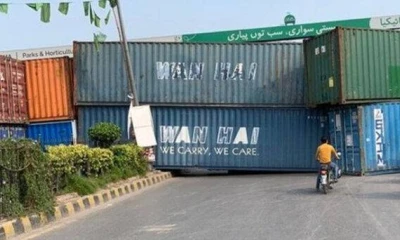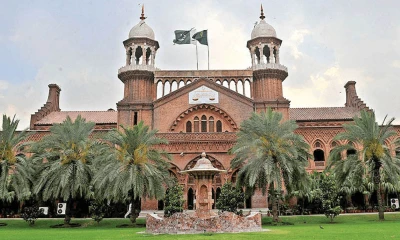Regional
I’m getting malaria to help eradicate it (and you can too)
Powerful new vaccines — and challenge trials around new drugs — are taking the fight to one of the world’s biggest killers.
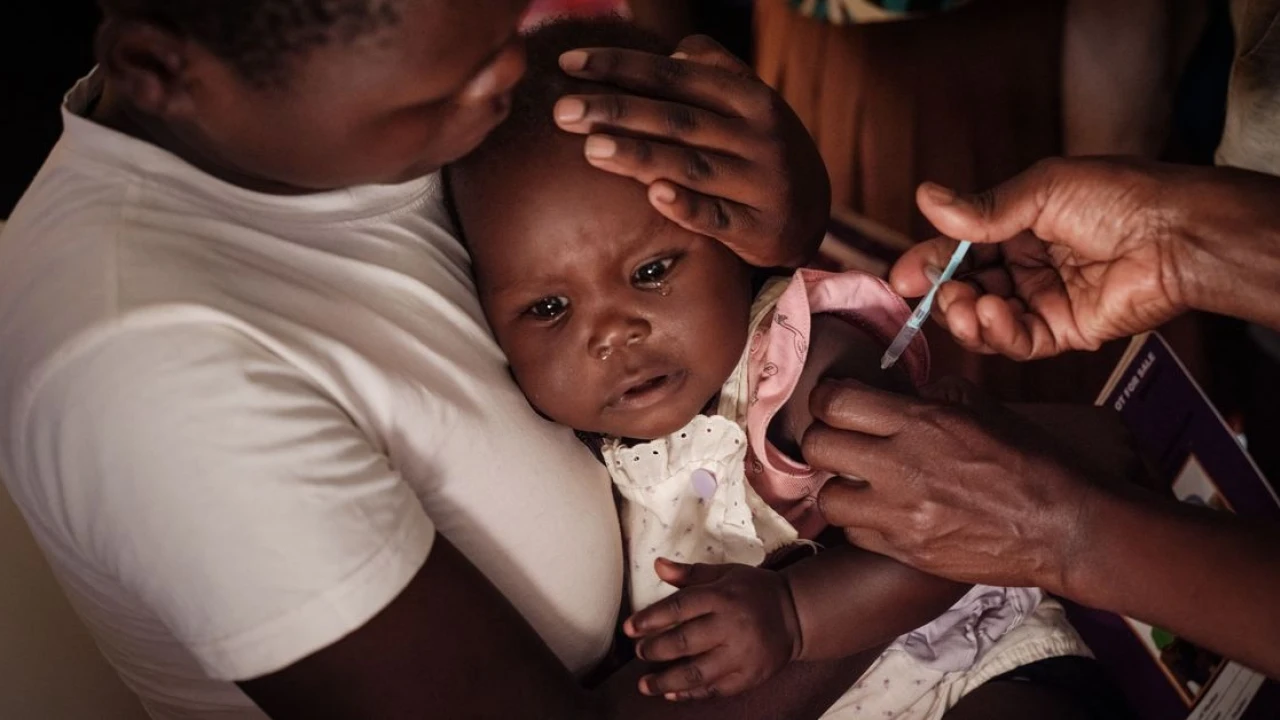
Like many of you, I’ve been making myself miserable in recent weeks reading and thinking about the deaths of children in widely covered warzones. Those deaths are important. They deserve to be marked and commemorated.
But so do the deaths of children whose demise is more routine. Those deaths, from poverty and disease and hunger, are less likely to make headlines, but they’re just as important. And we’ve gotten some shockingly good news recently about efforts to reduce them.
The World Health Organization has been running a pilot over the past few years involving the malaria vaccine RTS,S, or Mosquirix, made by GlaxoSmithKline. Public health experts have to date been excited about the vaccine, but cautiously so, with clinical trials suggesting efficacy of around 36.3 percent in preventing infection in toddlers. (By contrast, the Pfizer vaccine is about 92.4 percent effective at preventing symptomatic Covid.)
That makes the results of the pilot all the more striking: The vaccine appeared to have reduced deaths of young children by 13 percent. That’s all deaths, not just deaths from malaria.
To put that in context, in Ghana, Kenya, and Malawi, the three countries where the pilot took place, malaria caused 14.5 percent of deaths of children under 5 in 2019. That makes the 13 percent reduction in deaths found by the WHO look very similar to what would happen if one could snap their fingers and eliminate malaria altogether.
That’s not really what’s going on here, of course, and indeed we don’t know what accounts for these results. Malaria deaths were not wiped out entirely, suggesting that other kinds of deaths were prevented. One researcher speculated to Science that the vaccine might have strengthened children’s immune systems more generally and prevented deaths from other diseases. It’s also possible the study design picked up effects of interventions other than vaccination; while it uses a sound methodology, the pilot was not randomized and there’s always a risk of other factors confounding the results.
But the study underlines the fact that we’re in an incredibly exciting moment, where new treatments are making a world without malaria seem in reach. It’s a moment you can be a part of, too. You can help bring the number of people malaria kills each year down from more than 550,000 to zero.
The malaria vaccine era is a big deal
Researchers have been struggling toward developing effective malaria vaccines for decades now, as an excellent recent piece in Works in Progress details. It’s a tricky disease to vaccinate against: It’s caused not by a virus or a bacterium but by a eukaryotic parasite, which takes a circuitous path through the human body. The RTS,S vaccine was first evaluated in 1997 and is only gaining wide take-up 26 years later. But we appear to be in an exciting moment where vaccines are starting to work, and more effective options than RTS,S are on the horizon.
In the near term, the most exciting option is R21/Matrix-M. A recent phase 3 trial with 4,800 children found that the vaccine was 75 percent effective in preventing malaria over 12 months. RTS,S’s phase 3 trial, by contrast, estimated effectively at 55 percent. That effectiveness waned after a year, and the same might happen for R21, but all else being equal, we should expect R21 to be more effective.
Better still, R21 is easier to manufacture than RTS,S. The Serum Institute of India, a major pharmaceutical company, has already constructed facilities it claims can produce up to 200 million doses of the vaccine annually. Right now, there is not enough RTS,S to reach every child who would benefit from malaria vaccination, but the World Health Organization, which recently gave its approval to R21, has said that the second vaccine’s introduction “is expected to result in sufficient vaccine supply to benefit all children living in areas where malaria is a major public health risk.”
Even so, some public health experts are arguing the WHO is going too slow in rolling out the new vaccine. Currently, the agency is aiming to roll out the immunization in the middle of next year. “Why would you allow children to die instead of distributing the vaccine?” Adrian Hill, the director of the vaccine-developing Jenner Institute at Oxford and a designer of the R21 vaccine, asked the Financial Times. “There’s plenty of vaccine, let’s get it out there this year.”
How you can help
You can play a role in getting that vaccine, and the potentially even more effective mRNA vaccines to come, into as many kids as possible. The group 1Day Sooner is putting together a campaign to pressure the WHO and other stakeholders to treat this moment as an emergency, akin to the Covid situation in 2021, that demands getting vaccines into arms as soon as possible. You can learn more and join in here.
The rollout of vaccines does not mean that other means of malaria prevention — like insecticidal bednet distribution or the distribution of prophylactic drugs that can protect against infection (a practice known as “seasonal chemoprevention” or SMC) — are irrelevant. Field trials have found that SMC, for instance, adds to the effectiveness of vaccines and that the two together prevent more deaths than either could alone.
There is currently a strong need for more funding of bednets and seasonal chemoprevention. GiveWell, the charity evaluator, currently strongly recommends a group each doing bednets (the Against Malaria Foundation) and SMC (the Malaria Consortium), and has significant room for more funding from private donors this year. Its most recent statement estimates that additional donations can save a life for as little as $7,500. You will almost certainly save lives if you direct your charitable giving toward these groups. It’s among the best things you can do with your money.
Finally, you can help end malaria by participating in clinical trials of vaccines and other preventative measures. Both the National Institute of Allergies and Infectious Diseases in Bethesda, Maryland, and the Jenner Institute in Oxford, UK, are currently recruiting for vaccine trials. I’m excited to be participating in a trial at the University of Maryland right now testing out a monoclonal antibody to prevent malaria: This week, I was injected with an experimental mix of synthetic antibodies meant to combat malaria. (Or I was injected with a placebo. Fortunately for science, I don’t know which!)
Whereas vaccines prompt our immune systems to make these antibodies organically, this approach makes them pharmaceutically and injects them directly. This has proven very useful in the fight against Covid, and could be a helpful tool against malaria.
This comes with some risks. In January, I’m going to let the team at the Center for Vaccine Development put a container of malaria-carrying mosquitos next to my arm. The mosquitos will then, hopefully, bite me five times through a mesh barrier. Then, either I get malaria (and am quickly cured with chloroquine or another oral treatment, as happens in rich countries with developed medical systems) or I don’t, and either way the researchers get some useful data on whether this antibody works.
That’s worth it to me. We could be living at the moment when malaria starts to fade away for good — or we could be living at a time when climate change exposes new regions to malaria and makes the problem worse. Getting to a better, malaria-free world requires us all to step up, with money, activism, and sometimes our own bodies. Get involved.
A version of this newsletter originally appeared in the Future Perfect newsletter. Sign up here!
-
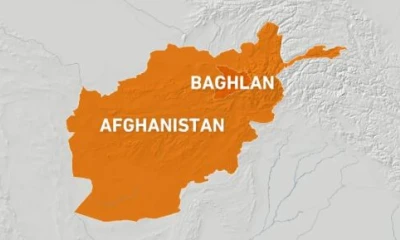
 World 2 days ago
World 2 days agoGuman kills 10 in attack on Sufi shrine in Afghanistan: interior ministry
-
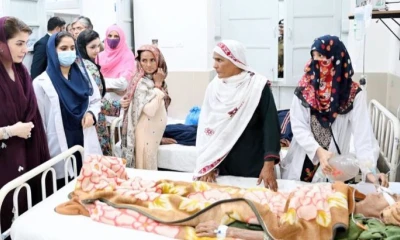
 Regional 1 day ago
Regional 1 day agoCM Maryam visits Nishtar Hospital, suspends paramedics over AIDS spread
-

 Pakistan 2 days ago
Pakistan 2 days agoBushra Bibi's allegations against Saudi Arabia 'baseless': Ex-COAS Qamar Bajwa
-

 Sports 2 days ago
Sports 2 days agoPCB appoints Azhar Ali as head of youth development
-

 Pakistan 2 days ago
Pakistan 2 days agoUK announces new Rs37bn climate finance program for Pakistan
-

 Regional 2 days ago
Regional 2 days agoPunjab situation better than others, no compromise on merit: CM Maryam
-

 Pakistan 2 days ago
Pakistan 2 days agoCOAS Asim Munir vows to dismantle hostile terrorist networks
-

 Technology 2 days ago
Technology 2 days agoCrypto giant Bitcoin touches record high of $100,000


